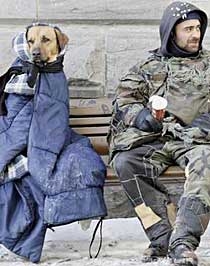To say that I'm disturbed by the Terri Schiavo situation is an understatement. It should be clear to anyone who has read my posts on the subject, that I'm greatly upset by the moral nature of the problem and what I perceive as the inability or refusal of people to tackle the larger issue of how the state and the law should approach the moral issue of "life."
What I'm wanting to do in this post is discuss this whole question from a Christian perspective. I've reached the point where I believe firmly that the courts in this case may have in fact judged properly in that the "law" made clear how they needed to rule. Yet at the same time, from my afore-mentioned Christian perspective, they seem to have gotten the moral question wrong. I believe, in otherwords, that the courts were ultimately legally right and morally wrong in their decision. Beyond that the ultimate question is, "How does a Christian react to this?"
Legally Right
The most easily understood explanation of how we got where we are legally, in my opinion, is found in this Powerline post. Written by a Florida lawyer, it's analysis focuses on how the Schindlers got out-lawyered in this fight but ends up highlighting clearly how the law got us here:
These organizations were very supportive, but by that point their options were already limited because the trial judge had entered a judgment finding that Terri Schiavo would not have wanted to live.
This fact is of crucial importance -- and it's one often not fully appreciated by the media, who like to focus on the drama of cases going to the big, powerful appeals courts: Once a trial court enters a judgment into the record, that judgment's findings become THE FACTS of the case, and can only be overturned if the fact finder (in this case, the judge) acted capriciously (i.e., reached a conclusion that had essentially no basis in fact).
In this case, the trial judge simply chose to believe Michael Schiavo's version of the facts over the Schindlers'. Since there was evidence to support his conclusion (in the form of testimony from Michael Schiavo's siblings), it became nearly impossible for the Schindlers to overturn it. The judges who considered the case after the trial-level proceeding could make decisions only on narrow questions of law. They had no room to ask, "Hey, wait a minute, would she really want to die?" That "fact" had already been decided.
Once Judge Greer made his ruling in the initial court proceeding, all subsequent reviews of the case were limited to the facts that Greer had allowed in the original finding of fact. Period. Subsequently, none of the other proceedings could include discussion of affidavits not entered in the original proceeding, or filed since or take into account new medical procedures and technology that might shed more or better light on the state of her health. Charles Krauthammer described it this way:
Because following the generally sensible rules of Florida custody laws, conducted with due diligence and great care over many years in this case, this is where the law led. For Congress and the president to then step in and try to override that by shifting the venue to a federal court was a legal travesty, a flagrant violation of federalism and the separation of powers. The federal judge who refused to reverse the Florida court was certainly true to the law.
The matter of whether or not it was right or wise for Congress to step into this matter is another argument, one being made by people far more qualified on the subject than I. Hugh Hewitt, for one, has been making the case on his radio show that the Congress was within it's rights to attempt protecting Terri's 14th Amendment rights. Hugh and others also have addressed the issue of whether the Federal courts have ignored the intent of the bill Congress passed last week. In this post I'm not overly concerned about either point per se, only about understanding how the courts found themselves legally right on the one hand and morally wrong on the other.
Morally Wrong
On Kudlow & Cramer last week, Hugh Hewitt was asked straight-out by host Larry Kudlow in the final segment whether morality trumps legality, in general and specifically in this case. His reply was, "Morality is always more important than law, but I don't think we have to get to that combination today, Larry. It's been 7 days since Terri Schiavo had a sip of water. The United States Congress came back under it's emergency authority to pass a statute. The president signed it. It called for a de novo hearing. That hearing has not been held. It would have been moral to hold the hearing. The failure is on the part of the federal courts. Mrs. Schiavo will die as a result, and that is tragic. And there's no way to explain it except by saying the courts could not be bothered."
Since that appearance Hugh has repeatedly made his case on the radio that, while he believes that the courts' decision(s) are a travesty of justice, he also believes that their rulings must be adhered to. He makes a persuasive case on both points. While he disagrees with whether or not the ruling is truly legally correct, Hugh agrees with many a conservative in calling the decision withholding food and water morally wrong.
In reviewing my earlier posts on this, I think they convey a certain amount of frustration but I'm not sure they also convey fully the outrage I've felt over this. I can only conclude that such outrage comes from my Christian faith. My worldview tells me that such actions, such disregard for the possibilities of life is anti-thetical to what I know of the God of the Bible, in all the same ways that abortion is perceived by many to be a moral wrong.
Many critics of the President's and Congressional action in this like to point out what they perceive as the hypocrisy of George Bush declaring that "we ought to err on the side of life," when he has presided over more than a hundred executions as Governor of Texas. This is just silly posturing; there is a moral distinction between an innocent woman guilty of nothing but misfortune and convicted criminals who have received due process in the form of criminal trials and appeals, that is so clear that--pardon the flip rhetoric, but it makes the point--my dogs get it. State sanctioned killing of an innocent woman when there is reason to doubt what her condition truly is or isn't, is morally wrong. As Hugh pointed out to Larry Kudlow, the moral thing would have been to resolve the doubt and act accordingly.
Now What?
What is the appropriate response of a Christian to wrongs committed by their government against it's own citizens? Paul's writings are full of commands urging believers to obey the authority of those governing them. Such authority comes from God and disregard for it is a serious matter. What then are the 'conditions' under which it is proper for a Christian to disregard the dictates of his government?
Acts 5:28-29 is probably the most obvious example of believers disregarding a direct command from those in authority. The context here is clear and obvious: God's command to speak truth about his Son trumps the right of a ruling authority that tries to silence that truth. Regardless that God had ordained the authority of the Sanhedrin over the Jewish community in Jerusalem, the truth of Christ was more imperative than their rule. Such would be the case today in similar circumstances.
The question is, does a situation like that of the Terri Schiavo case merit a similar imperative? Under a Christian worldview, is the life of a woman in such a vulnerable state worthy of such a solemn act as the blatant disregard of governmental authority?
Would a Christian be right in advocating, for instance, that Jeb Bush use his authority as Chief Executive of the State of Florida and take custody of Terri Schiavo in direct disobedience to court injunctions? Would that be a morally correct response to the ongoing moral-wrong we are witnessing?
Such a question is the ultimate point of this post; What is the correct Christian response to what we are witnessing in Florida? My hope is that this can stimulate a dialog about what is appropriate and what is not for Christians in response to the court-ordered removal of Terri's feeding tube.






